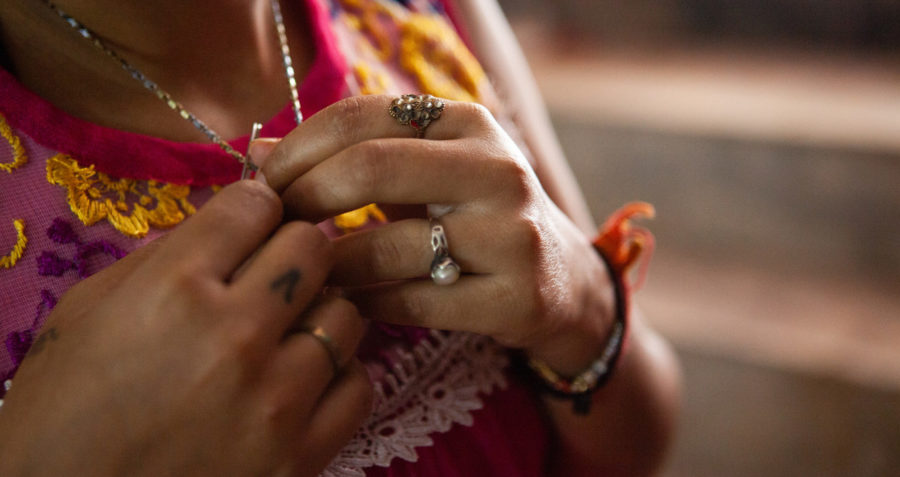YAGA (Burundi) and Sabrang (India)
 Frontline AIDS/Gemma Taylor/2018
Frontline AIDS/Gemma Taylor/2018
Key information
- Organisation: MAMTA [Burundi, prepared in partnership with ABS; India, prepared by MAMTA in partnership with TCI and Frontline AIDS]
- Country: India, Indonesia and Burundi
- Region: Asia and the Pacific, Western and central Africa
- Stage of innovation: Stage 4: Go-to-market strategy developed
- Start date: Aug 2017
- End date: Dec 2017
- Type of innovation: Service innovation: new or improved service
- Budget: US$27,750 (India)
- Funded by: Frontline AIDS. Part funding/co-investment being provided by the MAMTA-HIMC
Summary of intervention
Very few mHealth programmes have been designed with marginalised communities in mind.
To address this gap, MAMTA has designed an HIV/STI app for young transgender people, young men who have sex with men and young Hijra people in India, and Rumah Cemara has piloted the app in Indonesia.
The app uses static content, question-and-answer sections, audio messages and games to provide STI and HIV information and build knowledge and enhance skills on using condoms correctly and negotiating safer sex. People can also take quizzes to assess their sexual health risks, find friendly health providers and counsellors, and give feedback on the services they receive.
In India, the app has been used by 488 men who have sex with men, trans or Hijra people. Of these, 366 were aged 20-24, 109 aged 25-35 and 57 below 19 years. Under 19s are not eligible for the Indian government’s targeted HIV programme so this app fills an important gap for them. Research with 186 app users showed an increase in HIV knowledge. The proportion of respondents who correctly answered that HIV can be transmitted through unprotected sex with multiple partners increased from 88% to 98%, for example.
Learnings
- Engaging marginalised adolescents below the age of 18 remains a challenge due to the age of consent laws, despite these individuals having an urgent need for accurate HIV and STI information and services.
- The apps’ success is dependent upon other critical programming elements already being in place. This includes an enabling environment for young marginalised people to access services and a strong face-to-face element to raise awareness and support for the app through existing community networks and organisations.
next steps
- The intention is to scale up the app to reach 1,000 people in India. There are also plans to build capacities among young community representatives in India and Indonesia about using mHealth strategies to address the effects of stigma. RNJ+ and ABS have been involved in re-designing and packaging the app for use in Burundi, and MAMTA has recently secured a grant to adapt the app for use in Cambodia, in partnership with a Cambodian NGO.
- Whether using the app increases accessibility and acceptability of STI and HIV testing services will be documented.

